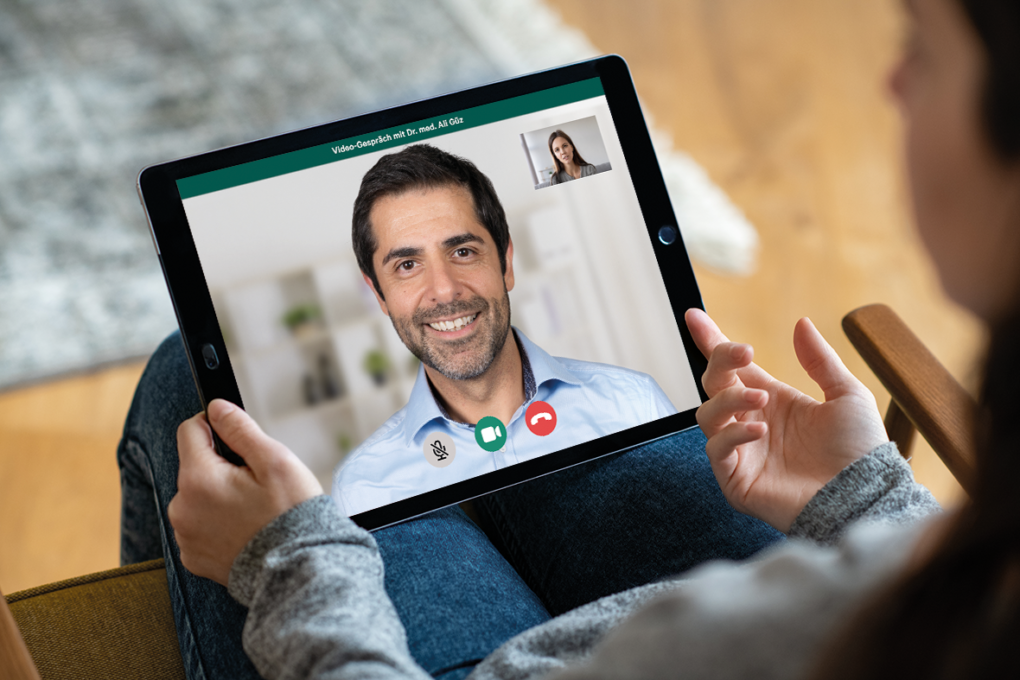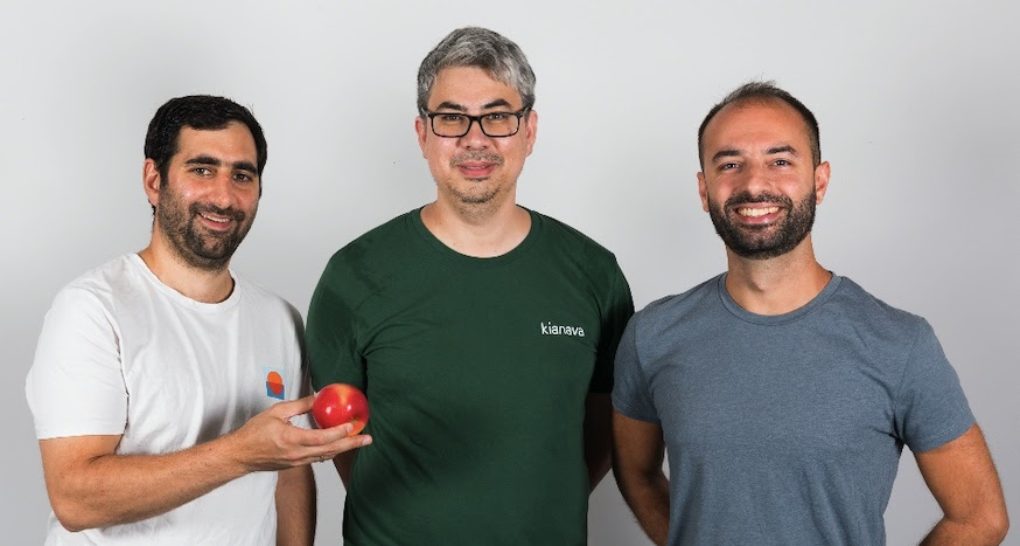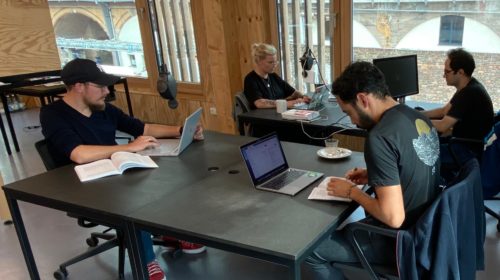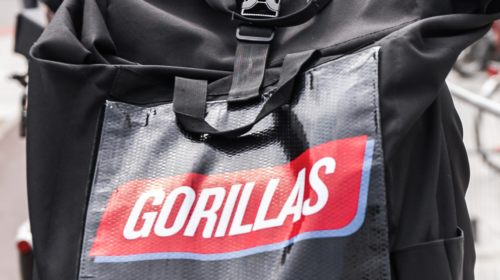
February 1, 2021
Kianava: Making Health More Personal
Events & Program Manager Charlotte Hook caught up with Kianava co-founder Saman Hashemian to learn more about the startup.
Charlotte: First things first – can you explain what Kianava is?
Saman: Kianava is a holistic medical platform for chronic disease patients. We’re trying to help people who are suffering from chronic disease like migraine, asthma, and chronic pain through integrative and personal medicine. We are bringing traditional medicine together with mind-body medicine and evidence-based natural medicine. Ultimately, we’re giving patients a holistic package to get to the core of the problem, and see how we can help them.
CH: How did you come to be in the healthtech sector? And how did you identify chronic care as the focus of the business?
SH: I’ve been working in Berlin startups for over 10 years – I started my career in Zalando, then Delivery Hero, then Babbel. These were amazing experiences, because I saw startups scaling pretty fast, and I was lucky enough to join some successful ones. I wanted to use the learnings I got in the digital space to have a real impact on society. For me, there are two big pillars that are needed to help society.
One is education, the other is health. I was thinking, ‘Who’s suffering in our society and how can we help them? How can we help them through a new digital tool?’ I was really shocked when I learned that almost every second German suffers from a chronic disease, even though we’re spending €1bill every day on the German healthcare system. So I said, ‘Okay, there’s some big, big problem, and there’s a massive opportunity here to help people to become healthier.’

CH: Yes, I read the article that SpeedInvest published about Kianava and the German chronic disease statistics. I was also amazed to see those numbers. I would have never expected that, especially in Germany.
SH: Yeah, and it’s not just a German problem. It’s a worldwide problem. Over the last 50 years we’ve lost sight of what a ‘healthy life’ actually is. But I think COVID-19 has helped us slow down, be more mindful, be more careful about our health, because you can see that the virus affects people who already have other conditions.
Building a company is probably the most unhealthy thing you can do in your life, because you’re constantly stressed, you have no time for good food, for meditating daily, and so on. I only wanted to found a company if I’m sure it would have a positive impact. I work with great people – doctors and therapists who also have this holistic mindset. We really, really care about patients, and we really want to help them in the long term.
Promoting change in the German healthcare system is very hard. There’s so many regulations, so many systemic problems, but it’s the positive feedback from our patients that motivates us to make it work.
CH: Definitely! I mean, it’s certainly a noble pursuit. So what is setting Kianava apart from competitors?
SH: I don’t think that the competition is a problem. There are a lot of other solutions for many different types of chronic disease and I think they are all needed because there are so many people suffering.
As a great article from Heal Capital recently observed, we need more customised and personal approaches to people and health. The body is super complex and we really believe that you need personalised care. Ironically, we’re using technology to make medicine more personal. We try to actually use the technology to support our doctors and therapists to have more time to focus on each case, and solve it as a team. This is what we stand for.
“I wrote in the Factory Family Slack that I need some feedback [and] within a few hours, I met a couple of people from the community. It was very good to just tap into this network and knowledge base.”
CH: What has been the reception of Kianava with healthcare providers and with patients so far?
SH: It’s very positive because they see it as a complimentary service. We are combining mind-body medicine, natural medicine, and traditional medicine in one holistic medical package. That’s really well perceived, because it’s exactly what’s missing from the healthcare system. The system currently just makes sure that you’re not getting sicker, and so it doesn’t support your path to become healthier. Practitioners feel frustrated that they can’t do more. They are really happy that companies like Kianava exist to solve that.
CH: The Kianava story is near and dear to our heart, since the company was founded in the community. What led you to join Factory Berlin and build your business here?
SH: Entrepreneur First brought me into Factory Berlin. This is a great partnership that Factory Berlin has, and it shows the strength of your community. You’re not just bringing freelancers into one building – you bring programs, other companies and smaller startups. It’s a real community of different people at different levels.
From day one, I fell in love with the Kreuzberg location. Within your network, I have reconnected with friends, colleagues, and old connections from the startup scene. I’m also a big foodie, and the Factory Kitchen is great!
CH: Has the community helped you on your founder’s journey?
SH: The community was a big advantage. After the EF programme, I was by myself, thinking about the idea, and I didn’t know where to start — what makes sense and what doesn’t. I wrote in the Factory Family Slack that I need some feedback, and I want to learn more about healthy habits for chronic disease and pains. Within a few hours, I met with a couple of people from the community who responded to my post. It was very good to just tap into this network and knowledge base.

CH: Could you tell us a little bit more about the founding team?
SH: We have three founders. Kian I know from high school. He was in consulting, helping startups get operations in a better shape. He had his own health issue himself, and was really convinced about the idea. Arnaud, the second co-founder and CTO, is someone that I worked with at Delivery Hero a few years ago. I met him again on my way to Factory Berlin Görlitzer Park randomly and he told me that he’s looking for new projects. Then we decided to build Kianava all together.
The first meetings were in Factory Berlin conference booths, where we basically brainstormed all the tech stack and the user flow. Our idea was really literally born in Factory Berlin.
CH: That’s really great. It’s also nice that the people who have joined you on the journey are people that you’ve known throughout your life.
SH: Well, founding a company is like marrying your co-founders. I’ve seen so many startups fail on the co-founder level. It was very important for me to make sure to find the right fit. Better not to found a company, than founding with the wrong people.
CH: Absolutely. So you rounded off 2020 with €1.25mill in investment from Speed Invest. With that investment under your belt, what’s next for Kianava?
SH: Very simple. We want to make more patients happy, help them to live healthier, and have a better life quality. That’s all we want to do. Nothing else matters.
“We want to make more patients happy, help them to live healthier, and have a better life quality. That's all we want to do. Nothing else matters.”

